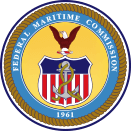The chassis world is always coming up with a new twist.
Two large chassis pool operators, in Chicago, LA/Long Beach, Memphis, and Savannah, have to allow truckers to use a provider of their own choosing.
The formation of chassis pools about 10 years ago was sparked by ocean carriers’ desire to stop providing chassis. The reason given was that US rules on who is responsible for damages if there is an accident placed the burden on the chassis owner. To escape, the ocean carriers decided to leave the chassis business in the US. That’s typical worldwide; for instance, in Europe most chassis are owned by trucking firms.
But how do ocean carrier customers in the US get chassis to move the containers once they are off the boat? A game theory analysis showed that truckers would not buy chassis unless they were virtually certain (over 90%) that the shipper would use their chassis rather than deal with the ocean carrier for one. Cargo gotta move — so the ocean carriers needed to find a way.
The answer was ‘chassis pools’. Ocean Carrier Equipment Management Association (OCEMA) developed Consolidated Chassis Management(CCM) to form and manage pools of container chassis at various ports to insure that chassis would be available for cargoes.
Clearly the pools were an advance. Pooling always allows demand to be satisfied with smaller inventory; it’s essentially a newsvendor situation. One big issue, however, is maintenance. A trucker expects to be given a chassis that is in good repair, and will probably not need maintenance during the trip. In the US, the trucker is responsible for on-the-road maintenance. So the question arises— how diligent will pool operators be in maintaining chassis that are turning over quickly?
That question alone was the spark of a putative strike at the LA/Long Beach pool. The union wanted to have control over workers at the pool yard, who were doing the maintenance. It became a big deal in the union negotiations. And the union won– union workers were hired to staff the yards. This went some distance to resolve the problem since the quality of the workforce was controlled by the union and not the owners of the yard.
All this sounds good so far. But issues can arise when individual carriage contracts are made. To what extent can carriers specify what equipment is used, and where it must be delivered when empty? What rates will be set for the use? And can contracts be altered while the chassis is moving, to specify return at a different place, or somewhere well off the route of the trucker?
In this case, the Administrative Judge ruled that motor carriers cannot be forced to use pool chassis; they may use their own chassis source. It’s a victory for truckers. There’s a tricky question of ‘default chassis provider’ when the contract does not specify the chassis source, but it’s clear now that the Judge wants truckers to be free to use their own provider.
That’s a win because it puts truckers in control of their chassis source, and frees them from potential hassles over contracting and repairs they might get into with CCM. They can manage their chassis choice themselves.
It’s interesting that over 9000 pages of documents were filed in this proceeding. Clearly both sides felt there was something to argue.

John Gallagher·Monday, February 06, 2023
Intermodal truckers secure win against ocean carriers – FreightWaves

- SEO Powered Content & PR Distribution. Get Amplified Today.
- Platoblockchain. Web3 Metaverse Intelligence. Knowledge Amplified. Access Here.
- Source: https://supplychainandlogistics.org/2023/02/08/intermodal-truckers-secure-win-against-ocean-carriers/
- 1
- 10
- 2014
- 2018
- a
- About
- accident
- administrative
- advance
- against
- allows
- alone
- always
- and
- answer
- argue
- Association
- available
- Beach
- because
- Big
- boat
- Both Sides
- burden
- business
- buy
- cannot
- Cargo
- carriers
- case
- certain
- chassis
- chicago
- choice
- choosing
- clear
- clearly
- COM
- coming
- Container
- Containers
- contract
- contracting
- contracts
- control
- controlled
- Customers
- deal
- decided
- decision
- delivered
- Demand
- developed
- different
- distance
- documents
- doing
- during
- equipment
- essentially
- Europe
- expects
- Files
- Find
- firms
- form
- formation
- Free
- from
- get
- given
- good
- How
- However
- HTTPS
- in
- individual
- instance
- interesting
- inventory
- issue
- issues
- IT
- judge
- large
- Leave
- made
- maintenance
- manage
- management
- max-width
- might
- most
- Motor
- move
- moving
- Need
- needed
- negotiations
- net
- New
- ocean
- ONE
- operators
- own
- owned
- owner
- owners
- Place
- plato
- Plato Data Intelligence
- PlatoData
- pool
- Pools
- ports
- potential
- probably
- Problem
- provider
- providing
- Puts
- quality
- question
- quickly
- Rates
- reason
- repair
- responsible
- return
- Route
- rules
- satisfied
- satisfied with
- secure
- set
- Sides
- since
- situation
- smaller
- So
- so Far
- some
- something
- somewhere
- Source
- Spark
- Staff
- Stop
- strike
- SUMMARY
- The
- their
- themselves
- to
- trip
- Trucking
- Turning
- twist
- typical
- union
- us
- use
- various
- virtually
- wanted
- What
- while
- WHO
- will
- win
- WordPress
- workers
- Workforce
- world
- worldwide
- would
- years
- zephyrnet












